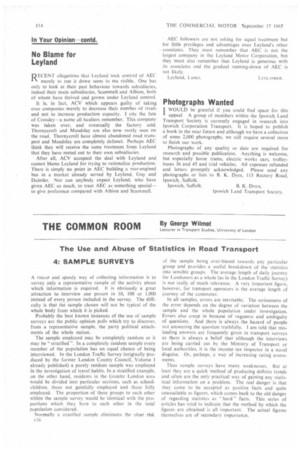In Your Opinion—contd.
Page 114

If you've noticed an error in this article please click here to report it so we can fix it.
No Blame for Leyland
RECENT allegations that Leyland look control of AEC merely to run it down seem to me risible. One has only to look at their past behaviour towards subsidiaries, indeed their main subsidiaries. Scammell and Albion, both of whom have thrived and grown under Leyland control.
It is, in fact, ACV which appears guilty of taking over companies merely to decrease their number of rivals and not to increase production capacity. I cite the fate of Crossley—a name all hauliers remember. This company was taken over, and eventually the factory sold. Thornycroft and Maudslay are also now rarely seen on the road. Thornycroft have almost abandoned road transport and Maudslay are completely defunct. Perhaps AEC think they will receive the same treatment from Leyland that they have meted out to their own subsidiaries.
After all, ACV accepted the deal with Leyland and cannot blame Leyland for trying to rationalize production. There is simply no point in AEC building a rear-engined bus in a market already served by Leyland, Guy and Daimler. Nor can anybody expect Leyland, who have given AEC so much, to treat AEC as something special— to give preference compared with Albion and Scammell. • AEC followers are not asking for equal treatment but for little privileges and advantages over Leyland's other associates. They must remember that AEC is not the largest company in the Leyland Motor Corporation, but they must also remember that Leyland is generous with its associates and the gradual running-down of AEC is not likely.
Leyland, Lancs. LEYLANDER.




















































































































































































